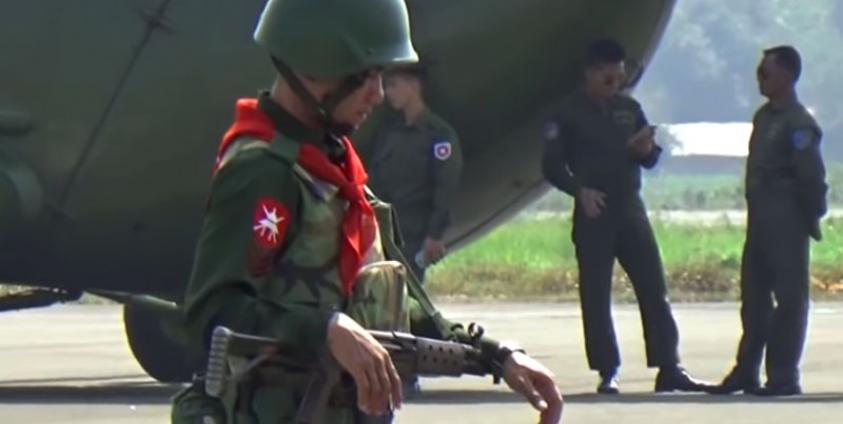Aung Htein and Khin Tharaphy Oo — The Ta’ang National Liberation Army, the Myanmar National Democratic Alliance Army and the Arakan Army released a statement on June 1 offering to enter into a bilateral ceasefire with the Tatmadaw as a basis for further peace negotiations.
The trio, known as the Northern Alliance, said they made the offer with goodwill and in good faith, hoping a jointly declared bilateral ceasefire could serve as a pragmatic first step in a renewed peace process.
The statement included promulgation of the trio’s sixth unilateral ceasefire declaration, proposed for June 1 through August 31, 2020.
The three ethnic armed organisations said, by way of caveat, that they would retaliate against any Tatmadaw attack occurring during the period covered by their unilateral ceasefire as a matter of self-defence.
Last month the Tatmadaw declared its own unilateral ceasefire from May 10 to August 31, saying the move was intended to facilitate Myanmar’s efforts to combat the coronavirus pandemic. However, the military’s ceasefire declaration effectively excludes large parts of Arakan State and southern Chin State, where fighting is still a frequent occurrence.
On May 29, the AA released a statement demanding that the government’s administrative apparatus and all government troops immediately withdraw from Arakan State.
In response, President’s Office spokesperson U Zaw Htay said at a May 30 news conference that the government would continue to conduct military operations targeting groups committing terrorist acts. (The government designated the AA as a “terrorist group” on March 23.)
Political analyst U Maung Maung Soe said tensions between the two sides could escalate hostilities between them.
“The Tatmadaw said they will not talk with the AA because the AA was declared a terrorist group. They previously said they were conducting operations to crack down on rebels. Now, they said they are conducting operations to crack down on terrorists. Since there is no dialogue between them, it is difficult to make a ceasefire,” U Maung Maung Soe said.
There are more than 164,000 IDPs in Arakan State and over 9,400 additionally in Chin State’s Paletwa Township due to the Tatmadaw-AA conflict, according to figures collected by civil society organisations.
U Kyaw Hla Sein, an IDP from Arakan State, said they wanted the armed groups to reach a ceasefire because civilians in the region were facing many difficulties.
“We are always wishing both sides can make peace,” said U Kyaw Hla Sein.
The civilian casualty count continues to rise due to ongoing clashes in Arakan State and Paletwa Township, Chin State.
The three ethnic armed group signatories to Monday’s statement said they declared their unilateral ceasefire with the intention of solving political problems by negotiating politically; to practically conduct a peacemaking process inclusive of the government, Tatmadaw and ethnic armed organisations; and to protect people’s lives and property by avoiding clashes.







